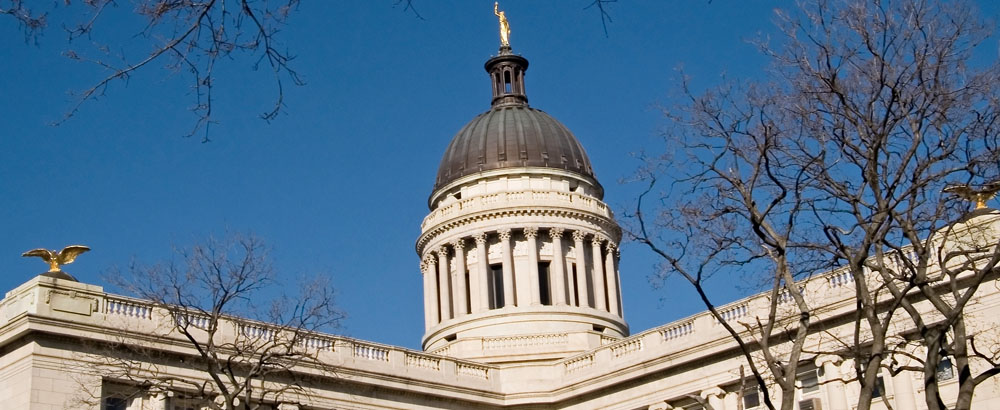New Jersey Bankruptcy Attorneys
It is often a difficult and unhappy decision to file for bankruptcy. Everyone has a different situation and the protections of the bankruptcy laws will benefit some more than others. Additionally, filing for bankruptcy has a psychological impact that cannot be ignored. Nobody likes to admit that they have failed in handling their personal finances. In order to make the decision easier, the following debunks many of the myths and stereotypes surrounding the filing for bankruptcy.
(1) Availability of Property Exemptions
Many people believe that filing for bankruptcy means that a U-haul truck will show up to seize their personal belongings and sell them. However, the Bankruptcy Code contains numerous exemptions that allow an individual to protect his or her assets from being sold to satisfy that person’s debts. Under the Bankruptcy Code, a New Jersey resident who files for bankruptcy has the option to claim the exemptions available under New Jersey state law or those under the federal Bankruptcy Code. However, in most cases, the federal exemptions are more advantageous for the typical debtor. The following is a partial list of property interests that are protected under the federal bankruptcy law:
- ordinary household furnishings and clothing – up to $575 per item, not to exceed a total of $12,250
- alimony and child support
- pensions
- social security benefits
- disability and unemployment
- modest amounts of cash – there is a “wild card”exemption that protects $1,225 of value in any property the debtor chooses
- equity in a motor vehicle – up to $3,675
- tools of one’s trade – up to $2,300
There are also additional exemptions that protect a portion of one’s equity in a home, the cash surrender value in a life insurance policy, and in a personal injury recovery. Lastly, if a joint petition is filed by spouses, the exemptions may be doubled.
(2) Shelter Expenses
Keeping one’s home after bankruptcy gets tricky only if the debtor is behind on mortgage payments, or if there is substantial equity in the property. If the debtor’s equity in the home is $22,975 of less (for a single filer, or less than $45,950 in a joint filing) and the debtor’s mortgage payments are current at the time of the filing, he or she should be able to “reaffirm” the mortgage, that is, continue to pay the Mortgage as before while remaining in the home as if the bankruptcy never happened. Indeed, even if the debtor has fallen behind in his or her mortgage payments, the lender may be willing to reinstate the mortgage or enter into a modification agreement. However, the lender will not be required to do so. Another alternative that may be available is for the individual to file for Chapter 13 protection, which would enable the debtor to pay his or her mortgage arrears over a period of up to 60 months while remaining current on the mortgage. Lastly, if a foreclosure is already in progress, a bankruptcy filing will likely only provide a temporary delay in the entry of the foreclosure judgment or the conducting of the sheriff’s sale of the property.
Nonetheless, sometimes a bankruptcy filing can provide an individual with enough time to save money for a new, cheaper place to live before the home is lost in a foreclosure. Moreover, if a person in financial distress has decided that he can no longer afford to live in his home and chooses to move out, filing for bankruptcy may help to discharge that person from any further liability to pay that mortgage debt. Likewise, if one rents the apartment or house in which he lives, the bankruptcy filing may relieve that debtor from paying any past due rent as of the filing date, although he would still be responsible to pay all rents coming due after the filing date. The same is also true with regard to condominium or townhouse association maintenance fees.
(3) Getting Credit in the Future
Filing for bankruptcy does not make it impossible for the debtor to ever obtain credit again. There are numerous lenders who will provide financing to someone who has filed for bankruptcy in the past when that person looks to buy a car or to open a new credit card account. One obvious drawback, however, is that the interest rates will likely be much higher. It should be noted that although a bankruptcy filing may appear on one’s credit reports for up to ten (10) years, it does not permanently ruin a debtor’s credit score.
(4) Student Loans
Student loans are generally not dischargeable in bankruptcy, except in extraordinary circumstances. Essentially, one’s earnings must be at or near the poverty level and the individual must be unable (not unwilling) to work for a long period of time. In addition, the borrower must have made reasonable efforts to make payments on the loan. If most, or all, of one’s debt is student loans, a bankruptcy filing may not be the right choice since it is very rare that such debts are discharged even in bankruptcy.
If you have any questions regarding whether bankruptcy is right for you, contact an experienced attorney who can advise you. Call (973) 256-0456 or fill out our contact form for a consultation.









